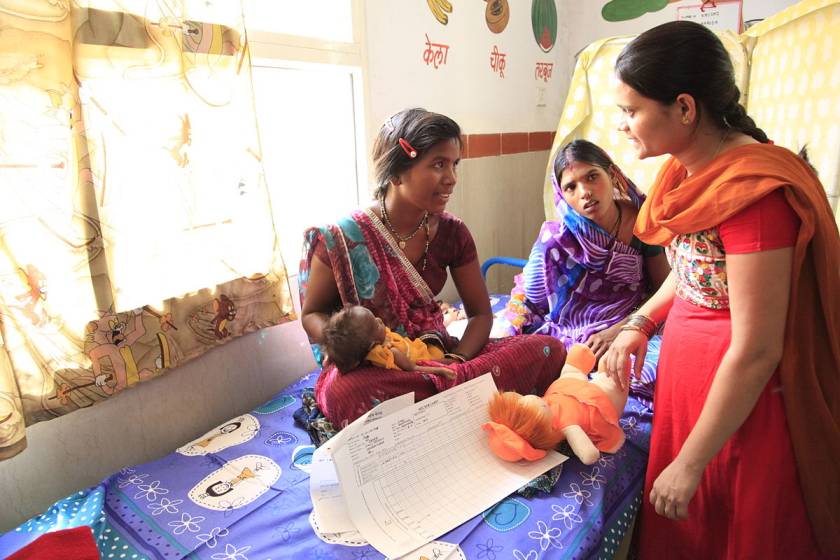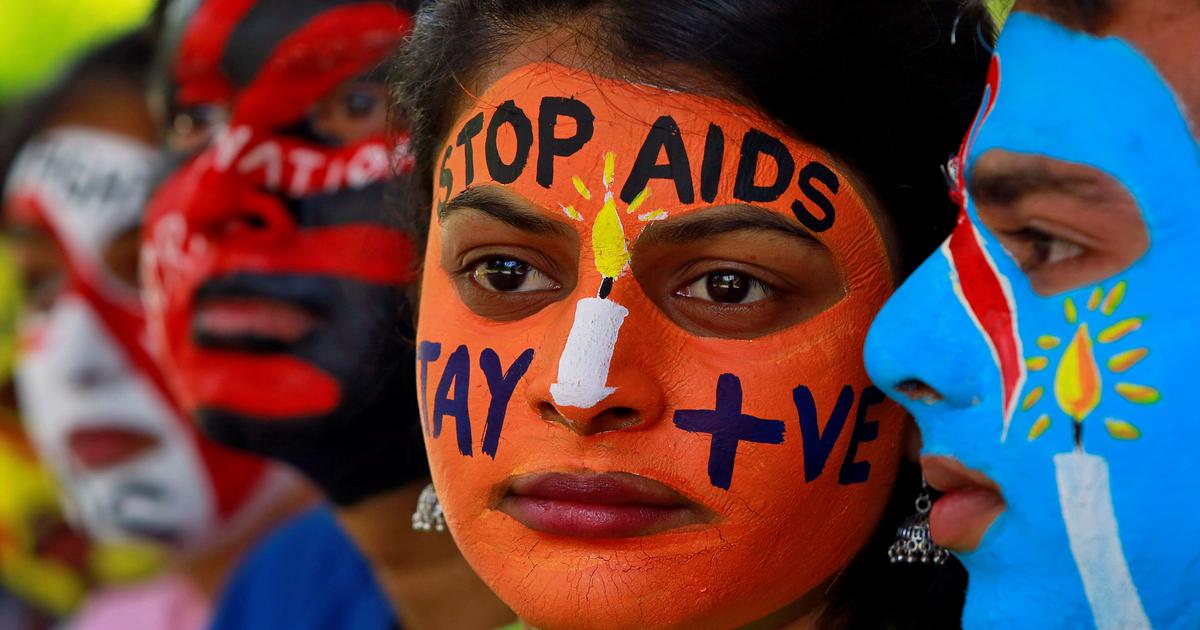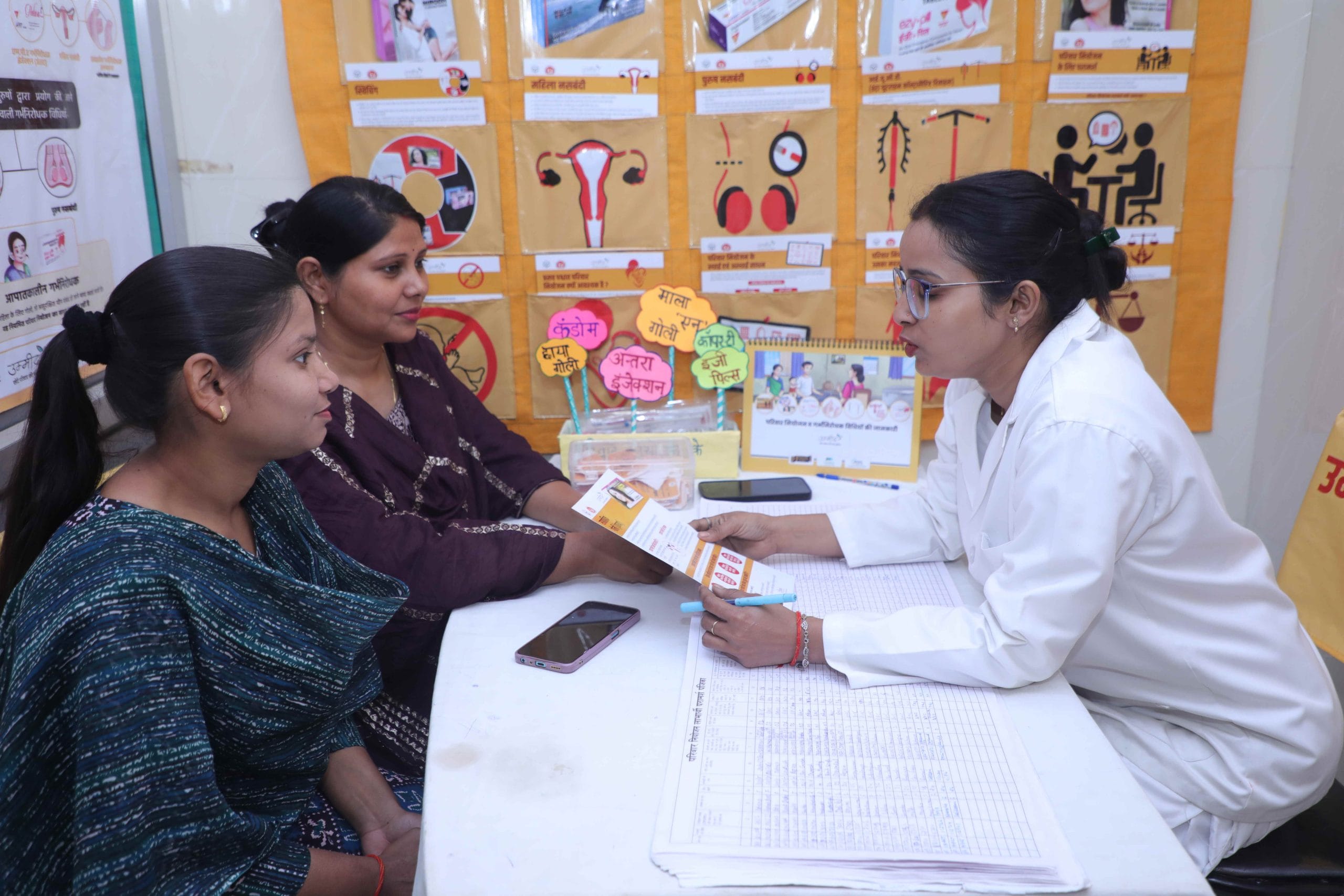Posted by Kanmani Palanisamy
Child stunting (low height for age) has increased in 13 states, child wasting (low weight for height) has increased in more than 12 states, number of underweight children has increased in 16 states, and children who are overweight has increased in 20 states. (All four indicators refer to children between the ages of 0-5 years.)
In 2017, a study conducted by the Indian Council of Medical Research (ICMR) revealed that 68 percent of under-five deaths in India can be attributed to child and maternal malnutrition. The most recent National Family Health Survey (NFHS-5) also indicates that maternal and child malnutrition is on the rise.
The number of anaemic pregnant women has also drastically increased in about 16 states and union territories (UTs).
This is despite provisions made by the government through schemes such as the National Food Security Act (NFSA) and the Pradhan Mantri Matri Vandana Yojana (PMMVY), which focus on nutrition and maternity benefits. PMMVY caters to a majority of the working women population as over 90 percent of working women in India are employed in the unorganised sector, and therefore lack the kinds of benefits offered in formal employment. But budgetary allocations for this scheme have only seen a downfall. The year 2020-21 saw the worst budget cut where revised estimates for PMMVY showed a 50 percent budget cut.
Also read: How Did COVID-19 Impact Reproductive Health Services In India?
Under Section 4 of the NFSA, every pregnant and lactating woman is guaranteed the right to free meals for six months, along with cash benefits of INR 6,000. These requirements are carried out under the PMMVY, which is a central scheme under the NFSA.
But a scheme that caters to a majority of women in India faces several issues that need to be scrutinised.
The scheme’s predecessor, The Indira Gandhi Matritva Sahyog Yojana (IGMSY), guaranteed INR 4,000 (in three settlements) as support to women who lost their wages due to pregnancy. The IGMSY offered this cash transfer to a woman for two live births. In other words, after a woman has given birth to two live-born babies. In 2013, the IGMSY was subsumed by the NFSA, and the cash amount was raised to INR 6,000. But in 2017, the IGMSY was replaced by the PMMVY. Under the PMMVY, women were only offered INR 5,000 (in three settlements). This is lower than the amount stipulated by the NFSA. More importantly, the cash transfer is valid only for a woman’s first baby.
The PMMVY and its maternity benefits need to become more inclusive.
The fact that the PMMVY covers only the first birth goes against the Constitution of India, along with violating clauses within its parent act—the NFSA. Here’s how:
1. It goes against the right to equality
Covering just the first birth is in direct conflict with Article 14 of the Constitution of India, as it makes an unreasonable and arbitrary classification.
The PMMVY seeks to classify women into two categories:
- Women employed in the organised sector (working in the state or central government, at public sector undertakings (PSUs), or other establishments where maternity benefits are already available)
- Women employed in the unorganised sector (to whom PMMVY is applicable as compensation for wages lost due to pregnancy)
Largely, the scheme covers the second category of women, since the Maternity Benefits Act, 2017 and Child Care Leave does not apply to them. As a result, while women in the first category are given maternity benefits and wage security for both first and second births, women in the second only receive benefits (that too, just partial wage compensation and no Child Care Leave) for the first birth. This leads to inequality among working women, based on an unreasonable and arbitrary classification.
Covering just the first birth is in direct conflict with Article 14 of the Constitution of India, as it makes an unreasonable and arbitrary classification.
Even if the classification is found to have a reasonable basis, the objective towards extending benefits to cover only the first pregnancy is arbitrary. When asked why the PMMVY only covered the first birth, the Minister of Women and Child Development stated, “Normally, the first pregnancy of a woman exposes her to new kinds of challenges and stress factors. Hence, the scheme provides support to the mother for safe delivery and immunisation of her first living child.”
However, other government maternity benefits are provided for the first and second births, and even the IGMSY stated that benefits extend for two births. With this scheme now subsumed under the PMMVY, it would be logical to expect that maternity benefits would cover two births as well.
2. It goes against the right to food, basic health and nutrition, and reproductive rights
The right to food, basic health and nutrition, and reproductive rights come under the purview of Article 21 of the Constitution of India. Denying extension of maternity benefits beyond the first birth could be seen as a violation of the reproductive rights of a woman who might choose to have a second child. It is also a violation of the right to food and basic health and nutrition for women who might suffer wage loss due to their pregnancy and face food insecurity as a result.
A better approach to family planning could be to bring these women (largely in the unorganised sector) under the purview of labour legislations.
Even if family planning is the overarching objective behind denying benefits beyond the first birth, it goes against the doctrine of proportionality as it cannot come at the expense of nutritional and economic support for women who need it. A better approach to family planning could be to bring these women (largely in the unorganised sector) under the purview of labour legislations.
3. It goes against the phrasing of the NFSA
The statement of objectives and reasons for the NFSA clearly says that ‘every pregnant woman and lactating mother’ is entitled to free meals as well as cash benefits for six months. The terminology used emphasises that ‘every’ pregnant and lactating woman should benefit. To restrict food security and money to cover only first birth goes against this.
As per the clause under which PMMVY is notified in the act, the central government can only prescribe the number of instalments through which the maternity benefits are paid. It cannot restrict entitlements to the number of births.
Hence, PMMVY must be extended to cover the second birth as well.
Apart from the reasons cited above, the PMMVY is also in violation of Article 42 (wherein the state must provide maternity relief), Article 43 (security of a living wage), and Article 47 (the duty of the state to raise nutrition levels and standard of living). It also goes against international laws such as the Convention on the Elimination of All Forms of Discrimination Against Women (CEDAW). India has committed to CEDAW, which guarantees the right to make reproductive decision without discrimination. Lastly, if family planning is an objective that influences the coverage of the PMMVY, it would be prudent to compare the scheme to other family planning programmes, where benefits typically cover two children.
Also read: Maternal Mental Health Matters! Read This eBook By White Swan Foundation
This piece was previously published on India Development Review and has been re-published here with consent.
Featured Image Source: Flickr
About the author(s)
India Development Review (IDR) is India's first independent online media and knowledge platform for the development community.




